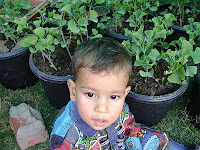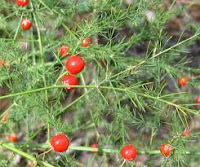Bot. name Melissa officinalis
Family : Labiatea
Other names: Balm, Lemon Balm, Melissa Balm (USA), Balm Mint
CULTIVATION CONDITIONS
Distribution : Sonamarag, Ramban (Kashmir Himalayas), Iran, USA, Pakistan. Egypt, Italy, Ireland.
Ecological notes : Grows on rich soils
Status : Not so common
The herb is commercially produced in Hungary and the oil in Ireland.
Melissa grows best in alluvial soil, excess water is harmful, while yields diminish in light and dry soils (Guenther).
Major producing countries : Hungary, Egypt, Italy, for herb Ireland for essential oil
Yield and description : Genuine Melissa oil is a pale yellow sweet smelling oil with an odour of aromatic lemon. Yields are as low as 0.014% for distillation of the fresh herb to 0.112% for dried herb, increasing to 0.13% using cohobation. True oil is extremely expensive. The oil is held in high esteem for its use in aromatherapy, it is reported to have a sedative effect. There is little use for the oil in perfumery, where the odour is readily suggested by blends of the very cheap oils of Lemon, Lemongrass and fortified by Citronella oil. According to Arctander the plant is known in Europe as "Hearts Delight" since infusions of the herb were supposed to cure heart disease and melancholia and this led to the late 1930's perfume "Cosur-Joie", which had a melissa like top note.
Uses : Infusions are made from the herb; the oil has several names (Oil of Balm, Oil of Lemon Balm, Oil of Melissa Balam, Oil of Balm Mint, Oil of Melissa Officinalis) and is used as a sedative in alternative medicine.
Cultivation details: Planting is usually 40,000 plants/Ha. with propagation from seed. The plants have a life of 10 years but are usually replaced every five years with crop rotation to rejuvenate the soil. Propagation in the northern hemisphere is from April to July.
Harvesting period : In the first year the crop is in August, thereafter two crops are experienced. The first in June and the second in August.
Harvesting methods : Usually by hand on a clear warm day as the leaves will turn black if harvested wet. For good appearance leaves should not be left in the sun.
Post harvest treatment, preservation, storage pre-treatment : Weed control is recommended (Pank). It has been reported that, in Kashmir and Egypt, irradiating seeds has an effect on growth, essential oil content and composition. The quantity of herb was reduced but the oil content was increased, with the irradiation dosage varying the proportion of the constituents.
Preservation and storage : The oil should be stored in filled sealed containers, out of light and kept cool. The oil is subject to oxidation.
Processing method : Stainless Steel steam distillation retorts equipped for cohobation should be used to increase the yield.
Composition of oil : Many reports exist regarding the composition. An analysis, from New Zealand, given for Melissa officinalis L. subsp altissima (Dawson) not only gives a yield 0.33% but constituents totally different from those of Melissa officinalis L. subsp officinalis.
A summary of the composition is given by Lawrence as follows:
Compounds Percentage range
Methyl Heptenone 2.2 - 8.6
Citronellal 1.0 - 8.4
Linalool 0.5 - 2.7
Neral 19.6 - 36.1
Geranial 25.3 - 47.5
Geranyl Acetate 1.2 - 6.2
1.9 - 9.7
Carophyllene oxide 0.5 - 9.0
EQUIPMENT
Forage Harvester
Stainless steel distillation equipment
Melissa officinalis - Lemon Balm seedlings are available
Courtesy of
http://plantoftheweek.org
Melissa officinalis
Herbaceous perennial. Native to the Kashmir, egypt. This is a classic medicinal tea herb. Assists in controlling high blood pressure, migraines, hysteria, melancholia, goiter, hyperthyroidism and Grave’s disease.
Cultivation: Extra care. Light-dependent germinator. Sow outdoors in the fall or very early spring or provide 2 weeks of cold conditioning. Germ. in 10-40 days. Prefers full sun or shade; normal garden soil and minimal water. Plant 1.5 feet apart. Flowers yellow to 2 feet tall.
100 seeds/pkt., Certified Organically Grown
Melissa officinalis







